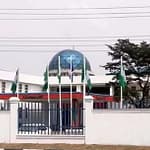The political stage, often a facade of unity, can sometimes reveal cracks from within. For the Labour Party (LP), the latest tremor shaking the foundations of the ruling All Progressives Congress (APC) isn’t just news – it’s evidence, and a source of gleeful derision. They point
Table of Contents
- APC’s Northern Exposure Is the Rot Spreading Inward
- Opposition Chirps Watching the APC House Start to Cave In
- Beyond the Mockery Why Internal Rumbles Signal Deeper Political Trouble
- Concluding Remarks

Opposition Chirps Watching the APC House Start to Cave In
The political landscape, ever fertile ground for schadenfreude, is currently echoing with the audible ‘chirps’ of rival parties witnessing what they perceive as foundational tremors rattling the ruling All Progressives Congress (APC). From their various vantage points, opposition camps appear to be gleefully pointing fingers at perceived cracks in the APC’s edifice. The Labour Party, never one to shy away from a pointed barb, took its observations public, specifically labelling an alleged “attempt to undermine Shettima in his region” not merely as political maneuvering, but a stark “sign of internal decay.” This critique

Beyond the Mockery Why Internal Rumbles Signal Deeper Political Trouble
While the Labour Party’s jab at the APC over perceived internal strife concerning figures like the Vice President might land as just political theatre, it peels back a more significant layer. Such public acknowledgment, even from opponents, acts as a spotlight on genuine fissures within the ruling structure. These aren’t just minor squabbles; they are often symptomsof something deeper:
- Erosion of unity: Key factions or individuals feeling marginalized.
- Strategic disagreements: Fundamental differences on governance or party direction.
- Power struggles: Competition for influence or position.
When internal disagreements spill into the public domain, whether through veiled criticism or open skirmishes, it signals a vulnerability that goes far beyond mere optics. It points to potential paralysis in decision-making, a struggle to maintain a united front on critical national issues, and a potential loss of public trust. The citizens observe not just the external challenges the nation faces, but also the capacity, or lack thereof, of the leadership to navigate its own internal dynamics seamlessly. This internal friction, magnified by political rivals, illustrates a concerning instability at the core.
| Rumble Type | Potential Impact | Significance |
|---|---|---|
| Factional Tension | Delayed Policy | Weakens Governance |
| Personality Clashes | Public Mistrust | Damages Image |
| Policy Disagreements | Inconsistent Action | Creates Uncertainty |
Concluding Remarks
As the political landscape shifts beneath the feet of Nigeria’s ruling elite, the Labour Party’s sharp critique of the APC’s internal rifts exposes more than just a power struggle-it reveals cracks deep within the party’s foundation. Attempting to undermine Shettima in his own stronghold may seem like a tactical move, but for many, it signals a troubling sign of decay that could unravel the very unity the APC claims to uphold. In this unfolding drama, one thing is clear: the battle for Nigeria’s soul is far from over, and the voices challenging the status quo are growing louder by the day. Whether this internal fracture will heal or widen remains to be seen, but its echoes will undoubtedly shape the nation’s political future.












